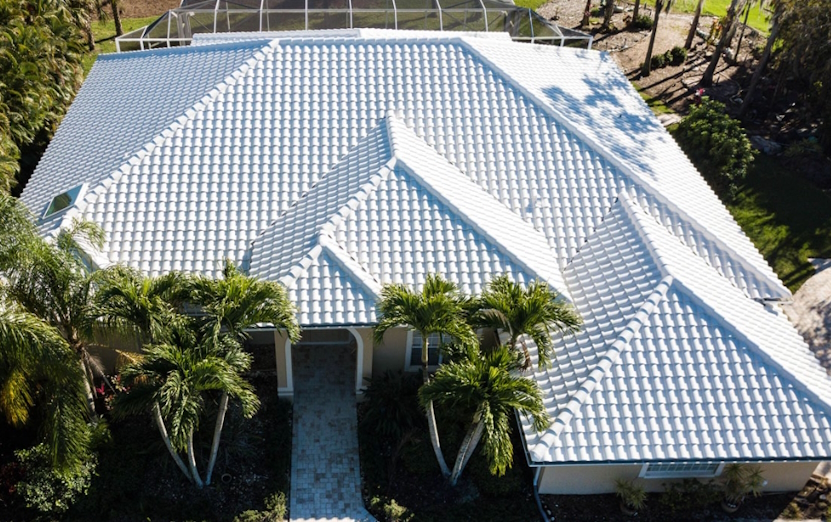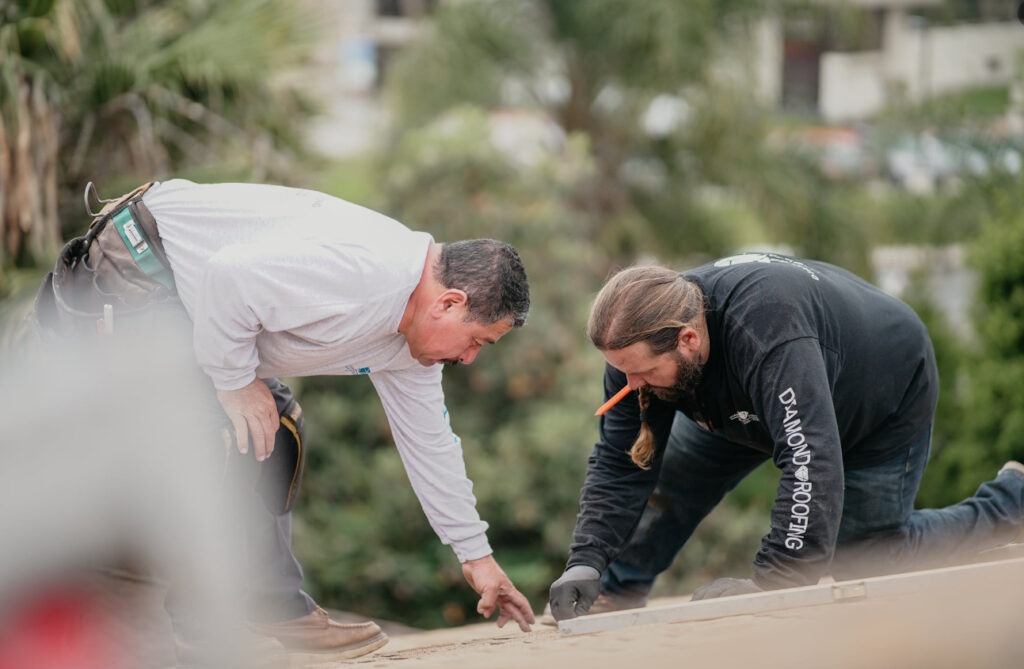- 727-748-1976
- [email protected]
- 3606 Enterprise Avenue Naples Florida 34104
With the high heat and humidity of the South Florida climate there are few roofing options that can out perform good old Tile Roof systems! While it’s true that few homes and buildings are left standing in south Florida for generations because we tend to tear them down and rebuild so quickly but you can still find homes with tile roofs that were built 50 – 60 years ago and longer! With proper annual maintenance and service or repair after each hurricane, a tile roof can last a lifetime. Additionally tile roofs are some of the most beautiful roofs you will find in Florida and come in a huge variety of colors and textures which is a designers dream!


Clay tiles almost always require more money upfront, however it can offer a number of benefits in terms of versatility, durability, and longevity. Aside from their great curb appeal and need for very little maintenance, they can make your home more energy-efficient. It’s also better rated for enduring fires and hurricane-force winds.
Clay tiles are probably the lest “Affordable” option for your roof! They are costly however if you average the cost over the 60 – 70 year life span they become a very inexpensive option “Long Term” but the up front investment is at the higher end of the spectrum when it comes to roofing materials. One thing that really offsets the price is the beauty of a clay tile roof. Clay tiles come in a huge variety of styles and colors so you can really incorporate tile into the overall aesthetics of your home in ways that are hard to do with other roofing options.
Because they’re so durable, it’s not unusual for clay tiles to last longer than the decks to which they’re installed. They’re made of molded clay that’s baked in a kiln at very high temperatures. They were once molded by hand, but modern technology has allowed them to be formed into a number of shapes, colors, and textures. The beauty and versatility of a clay tile roof can add extra character to any home, which is why it has been a popular option for such a long time.
A clay tile roof is virtually fireproof, and it requires very little maintenance. It also has a long lifespan, which is approximately 50 – 70 years. But some clay tiles can last up to a century. Archaeologists have even found Grecian roof tiles from the 3rd Millennium B. C. that we still in good condition. They cost more, but their natural beauty is worth the extra money.
They can add value to any property, and they work well in hot climates (such as the one we have in South Florida). They’ll never rot, and insects can’t get through them. You should, however, avoid walking on them because they can chip and break. Due to their weight, clay tiles may need more roof support (which can add to the cost of installation). But they can last longer than asphalt by several decades. In fact, a clay tile roof can last longer than two or more asphalt roof replacements.
Clay tiles can come in a number of different shapes and sizes, so they can fit any architectural style. Flat tiles can work well with homes that have a French or English style, while curved tiles can work with Spanish or Mission-style structures as well as homes that have an old-world European or Southwestern appearance. In fact, clay tiles are one of the most attractive and versatile roofing materials on the market today.

These roofing materials are composed of fiberglass or organic felt and coated with asphalt and granules, typically made of crushed rocks, and they protect against the sun’s UV rays. A staple in many American homes, asphalt shingle roofing systems offer affordability and durability.
Like clay tiles, concrete is both durable and resistant to fire. But the biggest advantage that concrete has over clay is the cost. Concrete tiles can look similar to clay, but it costs about 30-50% less.
While clay tiles can last longer, concrete tiles can last for 25 to 50 years. Like clay, concrete tiles are as solid as they are secure, but they’re heavy. If you’re thinking about using concrete tile for your roof, you should have a professional look at your home’s structural integrity and its ability to support a heavy load. You may need to reinforce your roof deck and support system before they can be installed.
Concrete tiles are made by mixing cement with sand and water, which are molded together with a combination of heat and pressure. The precise materials being used will vary with each manufacturer, but the basic ingredients are the same. It will usually include Portland cement as well as other blended types of cement that are mixed with fly ash, sand, and other elements
Concrete tiles come in three main appearances that are based on specific profiles.
Concrete tiles can come in a number of different colors, which can be combined with either a smooth or rough texture. And they’re also available in standard or lightweight. It may be more advisable to avoid lightweight tiles if you can because they’re much weaker and can be hard to walk on without breaking them. They’re also more susceptible to hail damage, which can be a disadvantage for any resident of the Coastal Bend.
A concrete tile roof is more susceptible to moisture absorption from wind-driven rain than any other roofing material. That’s why it’s important to install the underlayment, batten system, and flashing correctly. Most concrete tile roofing systems are installed with only one-ply, while asphalt shingles are typically done with two plies. And wood shakes can even go up to three plies. Almost anything can get under a tile roof. Rain, dirt, and even small animals can find their way underneath. But if the underlayment, battens, and flashing are properly installed, a concrete tile roof can last for a long time.
